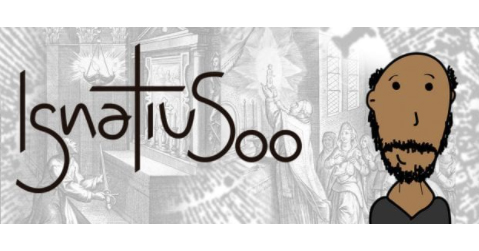
24 May May Reflection – Michael McFarland SJ
The Ignatian Year: Conversion and Discernment
Just 500 years ago on May 20, in a battle for the city of Pamplona, a cannonball struck the Basque solider Iñigo de Loyola, shattering his leg and with it his dreams of a glorious career as a military hero and ladies’ man. In his slow and painful convalescence, Iñigo came to recognize the shallowness of his past life chasing “vainglory,” and that he would only find genuine fulfillment in following Jesus Christ. That was the first step in a long journey of conversion, in which he had to confront his own demons of guilt, depression, ignorance and willfulness. He sank so deep into despair that he was close to suicide, when he finally had to let go and surrender to God. That was the turning point. It freed him from focusing on himself and opened him up to listen to God and follow God’s will. From there the former soldier, who took the name Ignatius in recognition of his new identity, set out on a new campaign, this time to win souls for Christ. He still had many challenges to overcome and lessons to learn, but he kept moving ahead with single-minded determination in pursuit of this goal, which ultimately led to the founding of the Society of Jesus.
In observance of this pivotal moment in our history, the Society of Jesus has begun an Ignatian Year, which will run through the Feast of St. Ignatius on July 31, 2022. This will not be the usual celebration of past accomplishments or present glories. Rather, in the spirit of the occasion that inspired it, it is meant to be a time of serious discernment and conversion. The guiding theme is, “Seeing all things new in Christ.” It is an invitation to all of us, Jesuits and our colleagues, our communities and our institutions, to discern and respond anew to Christ’s call to serve His people within the framework of the four apostolic preferences of the Society: (1) Showing the way to God through the Spiritual Exercises; (2) Walking with the excluded toward reconciliation and justice; (3) Journeying with youth in the creation of a hope-filled future; and (4) Caring for our common home. The key for us, as it was for Ignatius, will be to let go of our need for security, certainty and control and to surrender to God’s will.
This Ignatian Year, with its call to conversion, comes at a propitious time for the Gregorian University and its allied institutions, the Pontifical Biblical Institute and the Pontifical Oriental Institute. After years of hesitation and resistance, the three schools have embarked on a process of integration, with the ultimate goal of creating a single university while maintaining the distinctive identities of its components. Central to this effort is the crafting of a guiding vision for what the new Gregorian University should be and how it can best contribute to the future of the Church and the world. A broadly representative commission is now at work on this critical task.
There is great hope for this process. Though steeped in almost 500 years of tradition, the three schools have already shown remarkable adaptability and responsiveness to the needs of the contemporary Church and the wider society. In recent years, they have created new programs in abuse prevention, management and leadership, interreligious studies, evangelization and peacemaking. In their response to the pandemic, they have developed new pedagogies, technologies and delivery methods, which they will continue to use to reach a wider population even after the crisis eases. They can build on this experience as they develop a more comprehensive vision of their future service to the Church. We look forward to supporting this process and the stronger, more effective institution that we expect to emerge from it.
Michael C McFarland, SJ
President, Gregorian University Foundation



